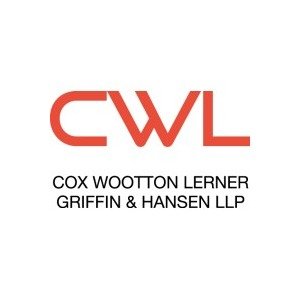Best Conveyancing Lawyers in Los Angeles
Share your needs with us, get contacted by law firms.
Free. Takes 2 min.
Free Guide to Hiring a Real Estate Lawyer
List of the best lawyers in Los Angeles, United States
About Conveyancing Law in Los Angeles, United States
Conveyancing refers to the legal process of transferring property ownership from one person or entity to another. In Los Angeles, United States, conveyancing typically involves the drafting, reviewing, and execution of legal documents required for real estate transactions. This includes the sale, purchase, or transfer of residential and commercial properties. The process is designed to ensure that the transfer is legitimate, secure, and meets all legal requirements set by state and local authorities. Conveyancing may also protect both buyers and sellers from legal disputes by ensuring that the property title is clear and that all financial obligations are settled.
Why You May Need a Lawyer
Conveyancing in Los Angeles often requires the expertise of a legal professional to navigate the complexities of property law. Common situations where individuals may seek legal aid include:
- Selling or purchasing residential or commercial real estate
- Transferring property between family members or as part of a trust or estate
- Resolving title discrepancies or addressing liens on a property
- Reviewing or drafting purchase agreements to ensure fair terms
- Dealing with disputes regarding property boundaries or easements
- Ensuring that disclosures are made according to California law
- Assisting with complex transactions, such as those involving co-ownership or investment properties
A conveyancing lawyer helps protect your interests, ensures compliance with all legal requirements, and reduces the risk of costly mistakes.
Local Laws Overview
Conveyancing in Los Angeles is governed by state and local laws, which specify how property transfers should take place. The following key aspects are particularly relevant:
- Disclosure requirements: Sellers must disclose known material facts about the property, including defects and hazards, following strict California standards.
- Title examination: A thorough review of the property title is essential to verify ownership and identify encumbrances like liens, easements, or judgments.
- Escrow process: Most transactions in Los Angeles use an escrow company to hold funds and ensure that all conditions of the sale are met before the property changes hands.
- Transfer taxes and fees: Both city and county transfer taxes may apply, and compliance with local tax regulations is required.
- Recording the deed: The new deed must be recorded with the Los Angeles County Recorder’s Office to make the transfer official and public.
- Local ordinances: Some neighborhoods may have specific rules impacting property transfers, such as historic preservation zones or special assessments.
A knowledgeable lawyer can help interpret and apply these laws to your specific transaction.
Frequently Asked Questions
What is conveyancing in real estate?
Conveyancing is the legal process of transferring the ownership of real property from one party to another, typically involving drafting, reviewing, and executing legal documents, as well as handling funds and ensuring a clear title.
Is it mandatory to use a lawyer for conveyancing in Los Angeles?
While California law does not require buyers or sellers to hire a lawyer for standard transactions, having legal representation is strongly advised to safeguard your interests and ensure compliance with complex regulations.
What are the typical costs associated with conveyancing?
Costs can include legal fees, escrow and title insurance fees, recording fees, and transfer taxes. Legal fees vary based on the complexity of the transaction and the services required.
How long does the conveyancing process take in Los Angeles?
The process can take several weeks to a few months, depending on factors like financing approval, title searches, property inspections, and the negotiation of terms.
What documents are necessary for conveyancing?
Key documents include the purchase agreement, seller disclosures, preliminary title report, escrow instructions, loan documents (if applicable), and a grant deed or quitclaim deed.
How can title issues be resolved during a conveyancing transaction?
A lawyer can help identify title issues such as liens, judgments, or easements. Resolution may involve negotiating payoffs, obtaining releases, or clearing up legal discrepancies before the transaction is completed.
What role does an escrow company play in conveyancing?
The escrow company acts as a neutral third party, holding funds and documents until all conditions of the sale have been met, ensuring both parties fulfill their contractual obligations.
What disclosures are required from sellers in Los Angeles?
Sellers must provide disclosures about the physical condition of the property, the presence of hazardous materials such as lead paint or asbestos, and any significant repairs or legal disputes related to the property.
Can a property be transferred if there are outstanding liens?
Outstanding liens must be addressed before the property transfer can be completed. A legal professional can assist with removing or negotiating these liens.
What happens if a dispute arises after the property is transferred?
Legal remedies depend on the nature of the dispute. Issues discovered post-transfer, such as undisclosed defects, may be resolved through negotiation, mediation, or court action if necessary.
Additional Resources
Those seeking more information or assistance with conveyancing in Los Angeles may find the following resources helpful:
- Los Angeles County Recorder’s Office - Responsible for recording property deeds and official documents
- California Department of Real Estate - Oversees real estate transactions and licensing in the state
- California Lawyers Association - Provides lawyer directories and legal education resources
- Legal Aid Foundation of Los Angeles - Offers free or low-cost legal assistance to qualifying individuals
- Local escrow and title companies - Often provide educational materials and assistance with the conveyancing process
Next Steps
If you require legal assistance with conveyancing in Los Angeles, consider the following steps:
- Gather all relevant property documents, including any existing titles, agreements, and financial statements.
- Contact a local real estate or conveyancing lawyer who is familiar with Los Angeles and California property laws.
- Schedule an initial consultation to review your situation and discuss possible courses of action.
- Obtain professional advice before signing any agreements or making payments related to the property transaction.
- Stay in communication with your lawyer throughout the process to ensure all requirements are met and your interests are properly protected.
A legal professional can guide you through each stage of the conveyancing process, helping you avoid common pitfalls and ensuring a smooth transfer of property ownership.
Lawzana helps you find the best lawyers and law firms in Los Angeles through a curated and pre-screened list of qualified legal professionals. Our platform offers rankings and detailed profiles of attorneys and law firms, allowing you to compare based on practice areas, including Conveyancing, experience, and client feedback.
Each profile includes a description of the firm's areas of practice, client reviews, team members and partners, year of establishment, spoken languages, office locations, contact information, social media presence, and any published articles or resources. Most firms on our platform speak English and are experienced in both local and international legal matters.
Get a quote from top-rated law firms in Los Angeles, United States — quickly, securely, and without unnecessary hassle.
Disclaimer:
The information provided on this page is for general informational purposes only and does not constitute legal advice. While we strive to ensure the accuracy and relevance of the content, legal information may change over time, and interpretations of the law can vary. You should always consult with a qualified legal professional for advice specific to your situation.
We disclaim all liability for actions taken or not taken based on the content of this page. If you believe any information is incorrect or outdated, please contact us, and we will review and update it where appropriate.

















